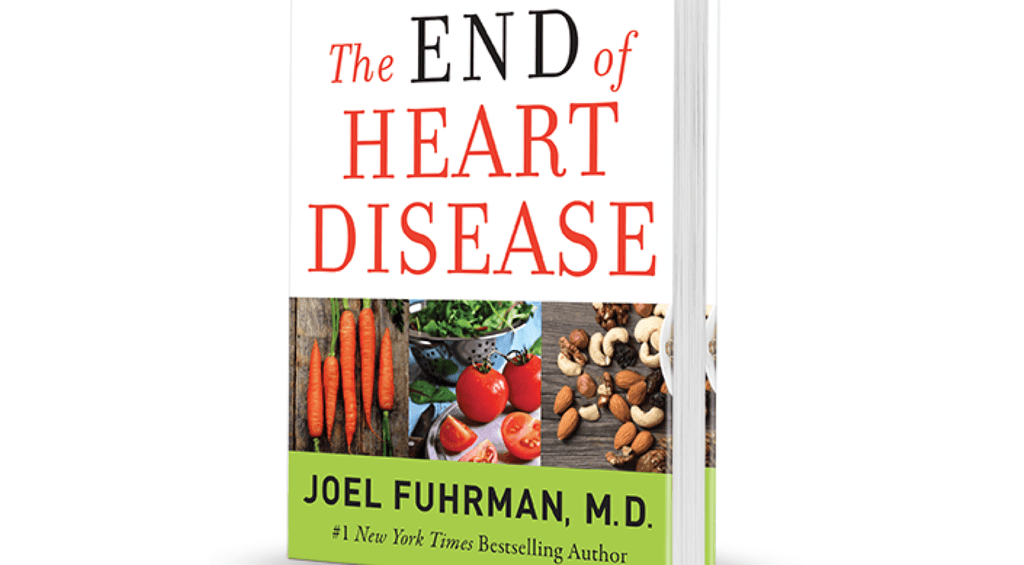This Doctor Says His Diet Can Prevent and Reverse Heart Disease: An Excerpt from Dr. Fuhrman's “The End of Heart Disease”

Heart disease is the leading cause of death for both men and women in the United States. In fact, cardiovascular diseases claim more lives than all forms of cancer combined. About half of these needless deaths are caused by sudden cardiac death. This means a person dies immediately after symptoms begin, or within a short time afterward. The cause of sudden cardiac death can vary from an obstructive clot to a fatal arrhythmia. Another common cause is enlargement of the heart, specifically, left ventricular hypertrophy caused by many years of high blood pressure. Fifty-five percent of the men and 68 percent of the women who die of sudden cardiac death have no prior warning of significant heart disease. Heart disease kills many people many years prematurely, and most of them do not even make it to the hospital alive.
Over the past twenty-five years, I have counseled thousands of patients who’ve had advanced heart disease, many of whom experienced angina (chest pain) or were told they needed urgent bypass surgery or angioplasty. Not one of the individuals who followed my nutritional recommendations ever had a heart attack or died from heart disease. I do believe that the risk goes down gradually, over time, when a person follows such a heart-protective diet-style. I do not think the first week, or even the first month, will offer total protection against heart attacks, but as months pass, I am certain that a heart attack would be an incredibly rare occurrence.
In my opinion, this lifesaving book should be distributed to every heart patient in the United States because conventional care, with its usual poor outcome, is bad medicine. Cardiac patients typically worsen and usually die of heart disease despite the finest medical management. Every physician caring for people presenting with heart disease should offer them the information found in this book. Not informing patients about this simple advice — advice that could make the difference between life and death — should be considered malpractice.
Patients are not given the information they need to make a definitive decision to not have a heart attack. Many may choose to eat the heart disease–causing Standard American Diet (SAD) and sprinkle a few drugs on top to try to lessen the risk a bit. That’s their choice. But others — and I hope this is you — will do more. They will say “No!” to angina and heart attack. They will learn that superior nutrition can reverse and prevent heart disease, and save them from getting some other diseases as well.
If what I am saying is true, and if what I call a Nutritarian dietstyle is this effective, then the foundation of traditional cardiology is subpar, even negligent. If a patient with heart disease is not told about effective dietary interventions and instead is offered only drugs; invasive, interventional procedures; and surgeries, then that person is denied informed consent. That patient has effectively been corralled into risky interventions that are expensive and high-tech — and mostly do not work.
I hope that with a careful review of the information and scientific references in this book, you, working with your doctor, will help modify the way medicine is practiced.
Excerpted with permission from The End of Heart Disease: The Eat to Live Plan to Prevent and Reverse Heart Disease by Joel Fuhrman, M.D.
Want more? You might also like:
What’s a Nutritarian Diet? This Doctor Shares the 8 Steps to Losing Weight for Good
Yo-Yo Dieting Linked to Aging Faster and Bigger Waistlines: How to Stop
Success Story: I Thought Being Obese Was Just In My Genes...Until I Lost 133 Pounds (Naturally!) With Dr. Fuhrman
Success Story: With Dr. Fuhrman’s Natural Weight-Loss Approach, I Dropped Over 100 Pounds and Have Kept It Off Since
5 Burning Questions About How to Lose Weight Answered
Note: PLEASE consult with your doctor before making any changes to your diet or medications. The material on this site is provided for educational purposes only, and is not to be used for medical advice, diagnosis or treatment.
























